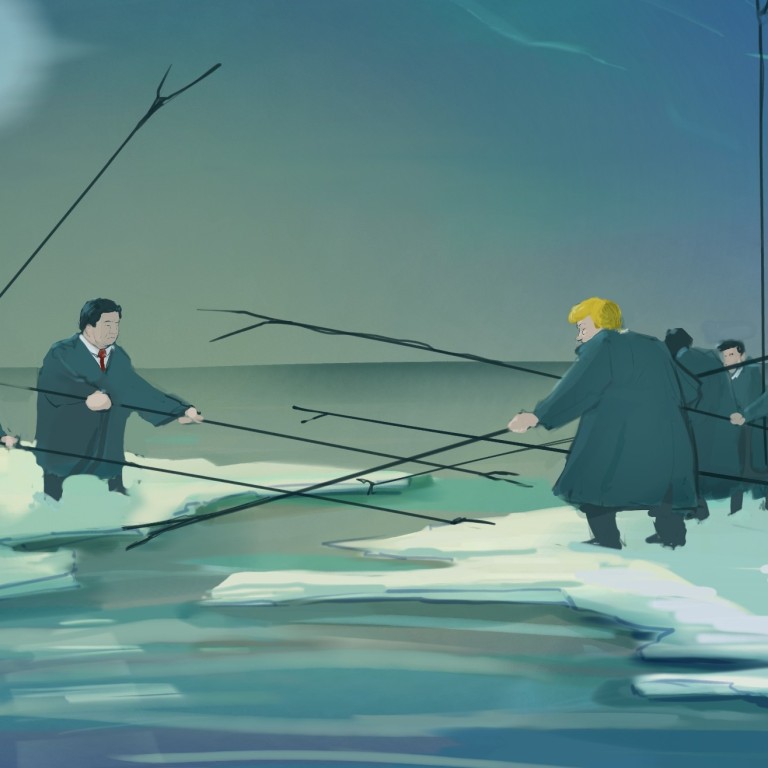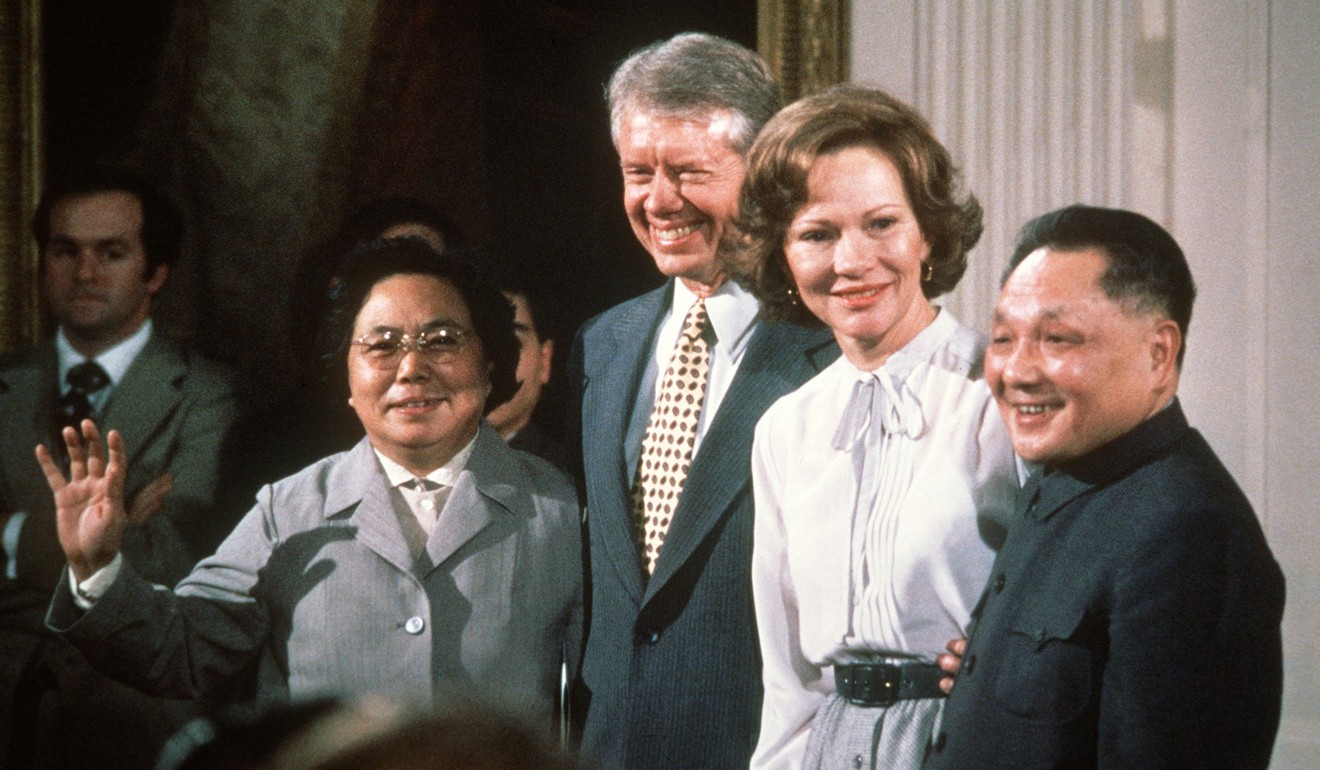
The US-China relationship is too big to fail, but are Trump and Xi the men to save it?
- Chi Wang says the normalisation of US-China ties, under Carter and Deng, was an undertaking made possible by a shared vision. How can the current leaders, with their conflicting goals, find a way to move the bilateral relationship forward?
Forty years ago, I stood at Andrews Air Force Base to await Deng Xiaoping’s arrival as he began his historic visit to the United States. There are no words to describe what it meant for me, as a Chinese-American, to see the country of my birth finally forging ties with my new home.
I always hoped for a better relationship, fitting my childhood memories of the US and China being allies during the second world war. The sight of American troops liberating our country from Japanese occupation is one of the images that originally inspired me to pursue an education in America.
When I met Deng at the Chinese Embassy before the reception held in his honour, he made it clear during our conversation his main goal in normalisation was to improve the lives of the Chinese people.
As head of the Chinese and Korean section at the Library of Congress, I got to play my own small part in the lead-up to normalisation.
Moreover, I had the opportunity to frequently meet those in the Carter administration who can truly be credited, alongside the president, with establishing official diplomatic relations with Beijing.
Their passion, understanding and dedication were unparalleled. They shared with China a vision for a better future – a vision they were eager to advance even though it required hard work, delicate negotiation, and the forming of ties and understanding with a country very different from their own.
For them, the potential benefits made the struggle worth it.
Speaking to Chinese foreign minister Huang Hua and other Chinese officials, I witnessed the same eagerness. It was this shared goal that allowed the two sides to work through disagreements, overcome hurdles and find solutions that would allow normalisation to succeed.

These are all qualities that, 40 years later, are missing from the US-China relationship. There is no longer a willingness to better understand the motivations, needs and concerns of the other side.
If today’s leadership had been in charge in the 1970s, I highly doubt normalisation would have even come close to succeeding
The shared vision for the future has dissolved, replaced by what seems to be increasingly conflicting goals. Instead of finding common ground, the leadership on both sides are allowing our differences in culture, governance and history to push us further apart.
These changes certainly affect the US-China relationship and have left both sides wondering if the past policies and approaches are still effective. The relationship definitely needs work.
If today’s leadership had been in charge in the 1970s, I highly doubt normalisation would have even come close to succeeding.
First, the US and China must decide on a shared vision that is more important than their grievances. This would encourage the countries to reach compromises to further the more significant goal.
A stronger economic relationship could be the new goal. But, as the trade war shows, this cannot work if the two sides do not come together to define what exactly their shared goal is and how to achieve it.
Second, the two sides must display a willingness to put in the extra effort that this complex relationship requires. Due to a complicated history, the US-China relationship requires strong diplomacy, including the creation of deep, long-term ties between officials.
A couple of high-level meetings between officials who do not trust each other are clearly not enough. Diplomats need to engage with their host countries and establish ties at all levels – within governments and with scholars and the public.
The relationship is too important to ignore and certainly too consequential to be allowed to crumble. Both the US and China must dedicate time, effort and personnel to striving for a better future.
Chi Wang, a former head of the Chinese section of the US Library of Congress and former university librarian at the Chinese University of Hong Kong, is president of the US-China Policy Foundation

